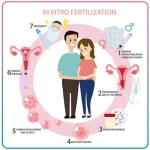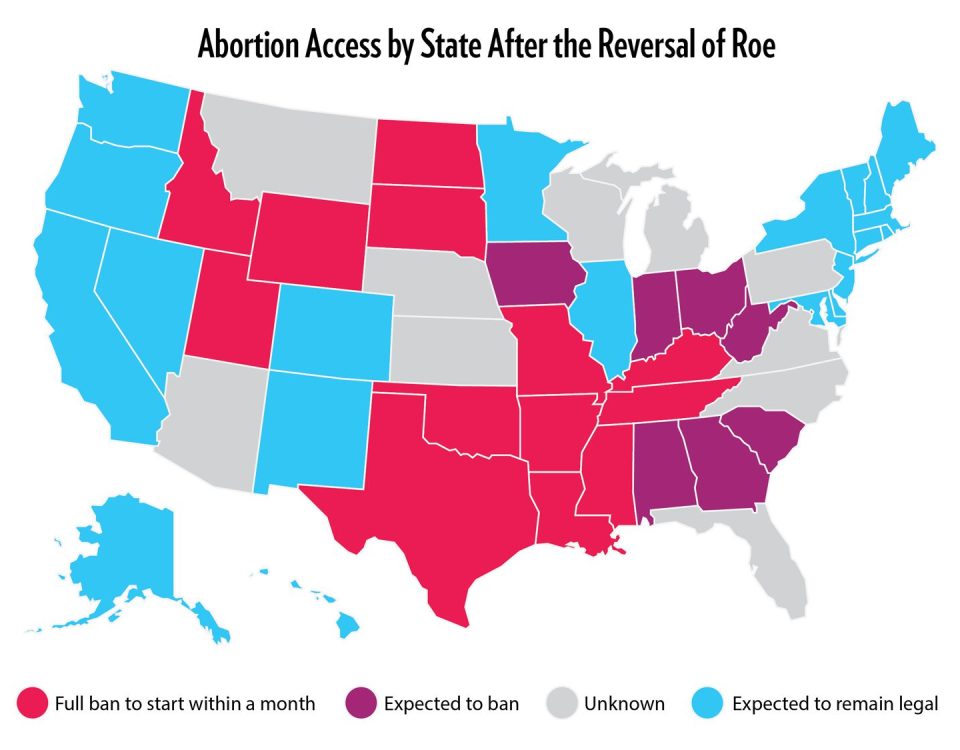
What Does IVF Mean? Your Complete Guide to Understanding In Vitro Fertilization
April 16, 2025
What Is IVF? Your Complete Guide to In Vitro Fertilization
April 16, 2025Why Are Republicans Against IVF? Exploring the Debate
In recent years, in vitro fertilization (IVF) has become a hot topic in American politics, especially among Republicans. You might have heard about lawmakers debating it on the news or seen posts about it online. IVF is a medical procedure that helps people have babies when they can’t conceive naturally, and it’s been a lifeline for millions of families. So why does it seem like some Republicans are against it? The answer isn’t simple—it’s tied to beliefs about life, religion, and government rules. Let’s dive into this issue, unpack the reasons, and figure out what’s really going on.
This isn’t just about politics; it’s about real people—couples dreaming of starting a family, doctors trying to help, and lawmakers wrestling with big questions. By the end, you’ll have a clearer picture of where the opposition comes from, what it means for families, and what might happen next. Plus, we’ll explore some angles you might not have thought about before, like how this debate affects rural communities or what science says about unused embryos. Ready? Let’s get started.
The Roots of Republican Opposition to IVF
At first glance, it might seem strange that Republicans, who often call themselves “pro-family,” would oppose something like IVF that helps people have kids. But the pushback isn’t about stopping families—it’s about how IVF works and what happens during the process.
IVF involves taking eggs from a woman, fertilizing them with sperm in a lab, and then placing the resulting embryos into the uterus. Often, doctors create extra embryos to increase the chances of success. Here’s where the disagreement starts: not all of those embryos get used. Some are frozen, donated, or discarded, and that’s a sticking point for many Republicans.
For a lot of conservatives, life begins the moment an egg is fertilized. This belief comes from their faith or their stance on abortion, where they see embryos as tiny humans with rights. If embryos are discarded during IVF, they argue it’s like ending a life. That’s why some Republicans have backed laws giving embryos “personhood”—the same legal status as a born child. For example, in 2024, Alabama’s Supreme Court ruled that frozen embryos are legally children, sparking a huge debate. Clinics paused IVF treatments, worried about lawsuits, until the state passed a fix to protect them.
This “life at conception” idea isn’t new—it’s been around in Republican circles for decades, especially among religious groups like evangelicals and Catholics. But IVF puts it to the test in a way abortion never did. Suddenly, a procedure meant to create life is clashing with beliefs about protecting it.
What Does This Mean in Practice?
Imagine you’re a couple doing IVF. You might create five embryos, but only one gets implanted. What happens to the other four? You could freeze them, donate them to research, or let them be destroyed. For some Republicans, that last option feels wrong. They’re not against you having a baby—they’re against what happens to the embryos you don’t use.
This tension shows up in Congress too. Over 100 House Republicans have co-sponsored the Life at Conception Act, which says life starts at fertilization. If that became law, it could make IVF trickier by limiting what doctors can do with extra embryos. No one’s saying “ban IVF” outright, but these rules could make it harder to get or afford.
The Political Tug-of-War Over IVF
The debate isn’t just about beliefs—it’s also about politics. IVF became a lightning rod after the 2022 Supreme Court decision that overturned Roe v. Wade, ending federal abortion rights. Democrats jumped on it, saying Republicans want to control all reproductive choices, including IVF. Republicans, meanwhile, insist they support IVF but want it regulated differently.
Take the Senate in 2024: Democrats pushed a bill called the Right to IVF Act to protect access nationwide. It failed twice—once in June and again in September—because most Republicans voted no. They called it too broad, saying it forced religious groups to go against their beliefs or let anyone use IVF without limits. Instead, Senators like Ted Cruz and Katie Britt offered their own bill, tying Medicaid funding to states that allow IVF. Democrats shot that down, saying it didn’t go far enough.
Why the back-and-forth? Elections. With 2024 being a big voting year, both sides are playing to their bases. Democrats want to paint Republicans as anti-family; Republicans want to show they’re pro-life without losing voters who love IVF. Former President Donald Trump even jumped in, promising free IVF if he won, though he didn’t say how it’d work. It’s a messy game, and families needing IVF are caught in the middle.
A Quick Poll for You
What do you think? Should the government protect IVF access for everyone, or should it set stricter rules on how it’s done?
- A) Protect it fully—no restrictions
- B) Set some rules, especially about embryos
- C) I’m not sure yet
Drop your answer in your head (or the comments if you’re reading this on a blog!), and let’s keep going.
Religion, Science, and the Embryo Dilemma
The heart of this debate is embryos—what they are and what to do with them. For many Republicans, especially those tied to evangelical or Catholic communities, embryos aren’t just cells; they’re potential people. The Southern Baptist Convention, a big conservative group, voted in 2024 to oppose IVF because it often discards embryos. They’d rather see couples adopt or limit how many embryos are made.
Science sees it differently. A 2023 study from the American Society for Reproductive Medicine found that about 60% of IVF embryos don’t survive to become pregnancies, even if implanted. Freezing helps, but not every embryo makes it. Doctors say making extra embryos boosts success rates—three embryos give a 95% chance of a baby, versus 65% with one, according to Reproductive Medicine Associates.
So, here’s the clash: faith says every embryo deserves a shot at life; science says extra embryos are key to helping families. Republicans often lean toward faith, which is why some push for laws limiting how many embryos you can create or banning genetic testing that picks “the best” ones.
What Can Couples Do?
If you’re thinking about IVF and worried about this debate, here’s a practical checklist:
✔️ Ask your clinic: Find out their policy on extra embryos—do they freeze, donate, or discard?
✔️ Plan ahead: Decide what you’re comfortable with before starting. Freezing might be a middle ground.
❌ Don’t wait too long: Laws could change, so talk to a doctor sooner rather than later.
✔️ Check your state: Some places, like Louisiana, already ban discarding embryos, so know your local rules.
The Cost Factor: IVF’s Hidden Battleground
Here’s something you won’t find in every article: cost plays a huge role in why Republicans and IVF don’t always mix. IVF isn’t cheap—a single round can run $12,000 to $25,000, and most insurance doesn’t cover it. Trump’s 2024 promise to make it free sounded great, but conservatives who hate big government spending balked. They’d rather see private solutions, like tax breaks or health savings accounts, than a federal program.
This matters especially in rural areas, where IVF clinics are rare. A 2022 report from the Rural Health Research Center showed that 80% of rural counties lack fertility services. Couples there might drive hours or pay extra for travel, piling onto the cost. If Republicans push rules that make IVF harder—like limiting embryos or adding legal risks—clinics might raise prices or close, hitting rural families hardest.
A Real Story
Meet Sarah, a 32-year-old from rural Kansas (not her real name, but a true example). She and her husband saved for two years to afford IVF, driving three hours to the nearest clinic. They created four embryos, used one, and froze the rest. When Alabama’s ruling hit the news, their clinic warned that new laws could force them to keep embryos frozen forever—or face lawsuits. “We just wanted a baby,” Sarah said. “Now we’re scared we’ll owe storage fees we can’t pay.”
IVF and the “Personhood” Puzzle
Let’s dig into something tricky: personhood laws. These are rules saying embryos have the same rights as people. Over 160 House Republicans backed the Life at Conception Act, which doesn’t mention IVF but could shake it up. If embryos are “people,” can you discard them? Freeze them forever? Who pays for that?
In Louisiana, the only state with full embryo personhood, clinics can’t destroy unused embryos. Couples either implant them all, donate them, or store them indefinitely—costing $500 to $1,000 a year. A 2024 survey by Resolve: The National Infertility Association found that 1 in 5 Louisiana IVF patients moved treatments out of state to avoid these rules.
Republicans say this protects life, but critics argue it’s impractical. Over 1 million embryos are frozen nationwide, per a 2023 estimate from the Guttmacher Institute. If every state followed Louisiana, storage costs could skyrocket, and clinics might stop offering IVF altogether.
What’s the Fix?
No one’s solved this yet, but here’s a thought: what if clinics offered “single-embryo IVF”? You’d make one embryo at a time, reducing extras. It’s slower and pricier per round, but it sidesteps the personhood fight. Worth a try?
The Rural IVF Crisis: An Overlooked Angle
Most articles skip this, but rural America’s IVF struggles deserve a spotlight. Beyond cost and distance, rural couples face a knowledge gap. A 2023 study from the University of Iowa found that 40% of rural women didn’t know IVF was an option until a doctor mentioned it—twice the rate in cities. If Republicans tighten IVF rules, these families could lose access entirely.
Picture this: a small-town couple in Montana, no clinic within 200 miles, already stretched thin by farm bills. Add embryo storage fees or legal risks, and IVF’s out of reach. Republicans might not mean to hurt these folks, but their policies could.
How to Bridge the Gap
✔️ Telehealth consults: Doctors could explain IVF options online, saving travel.
✔️ Community clinics: Subsidize pop-up fertility services in rural areas.
❌ Don’t assume access: Lawmakers need to hear from rural voices, not just city ones.
Science vs. Sentiment: What’s Next for IVF?
Science keeps pushing IVF forward—new techniques like gene editing or artificial wombs could change everything. But Republicans wary of “playing God” might resist. A 2024 Pew Research poll showed 60% of evangelicals oppose genetic testing in IVF, fearing it leads to designer babies.
Meanwhile, public support for IVF is huge—over 80% of Americans back it, per a 2023 Gallup survey. That’s why Republicans like Trump and Senator Rick Scott (whose daughter used IVF) say they’re pro-IVF, even as their party wrestles with the details.
A Mini Quiz
Which matters more to you in this debate?
- Protecting every embryo
- Helping families have kids
- Keeping government out of it
Think it over—it’s where the future of IVF might hinge.
The Bigger Picture: IVF’s Future in a Divided America
So, are Republicans really against IVF? Not exactly. They’re against parts of it—the discarding, the unlimited creation, the cost if government pays. But they’re not a monolith. Some, like Senator Lisa Murkowski, voted for the Right to IVF Act. Others, like the Southern Baptists, want it restricted.
What’s clear is this: the debate’s not going away. With states making their own rules post-Roe, IVF access could look like a patchwork—easy in blue states, tough in red ones. A 2025 executive order from President Trump pushed for cheaper IVF, but Congress is still gridlocked.
Your Action Plan
If IVF matters to you, here’s what to do:
- Stay informed: Follow state laws—they’re changing fast.
- Speak up: Tell your lawmakers what you think, especially if you’re rural.
- Support research: Groups like Resolve fund studies to keep IVF safe and affordable.
Wrapping It Up
The Republican stance on IVF isn’t black-and-white. It’s a mix of faith, science, and politics, with real families in the crosshairs. Whether it’s about protecting embryos or keeping government small, their views shape a debate that’s bigger than any one party.
Next time you hear about IVF in the news, you’ll know the stakes— not just for lawmakers, but for people like Sarah, or maybe even you. What do you think the future holds? One thing’s for sure: it’s a story worth watching.



